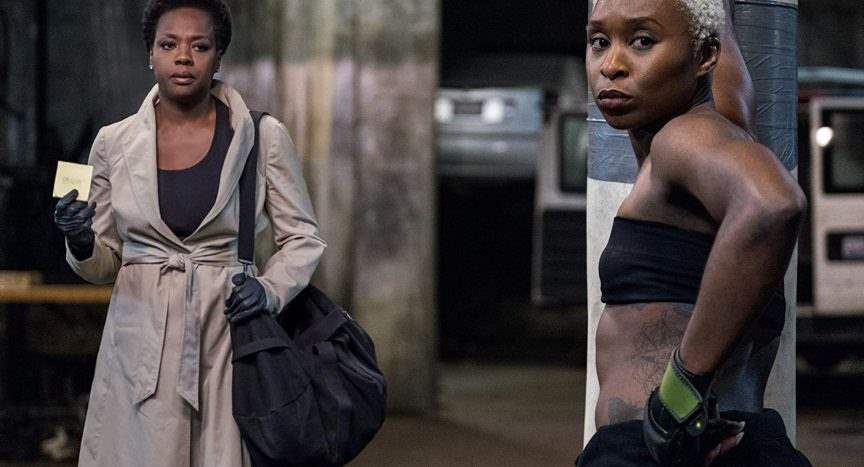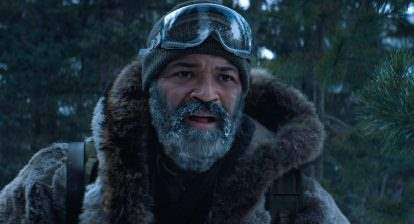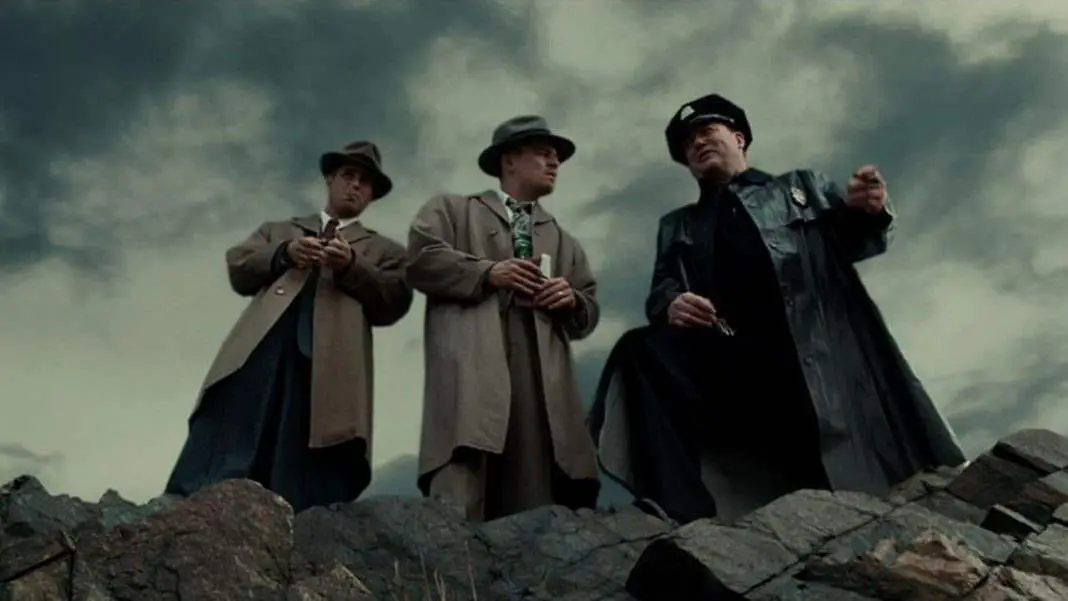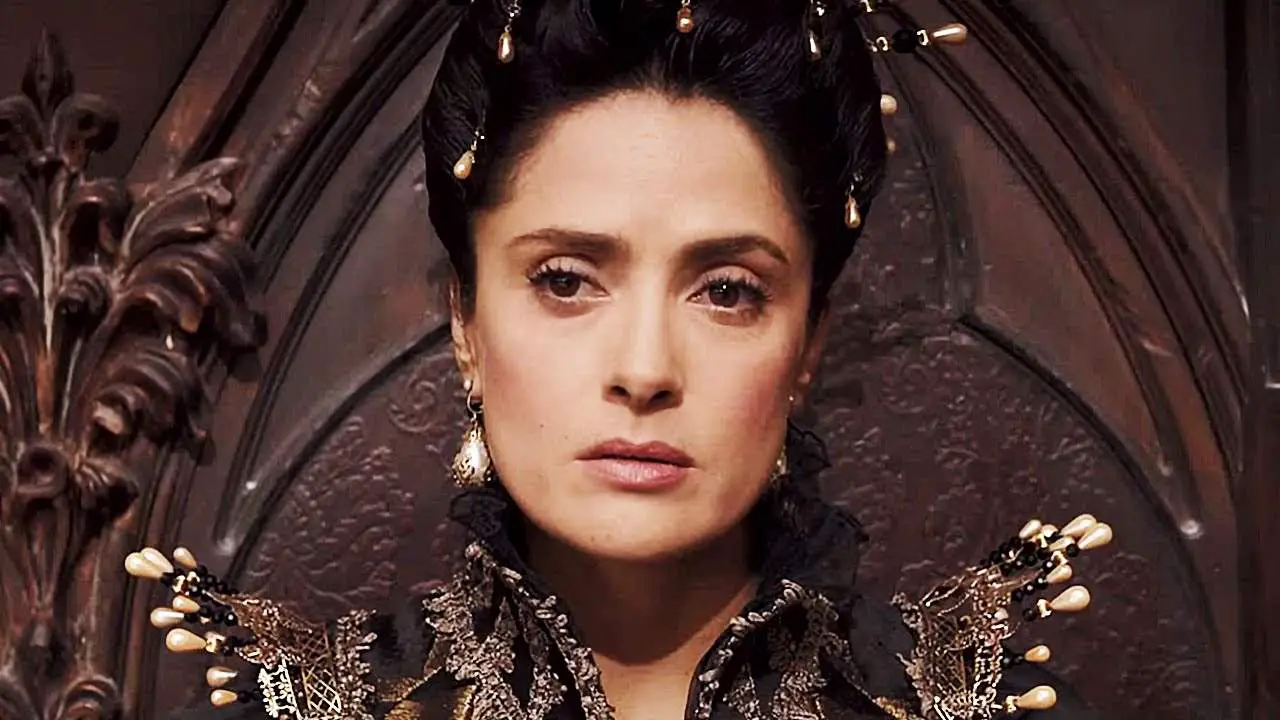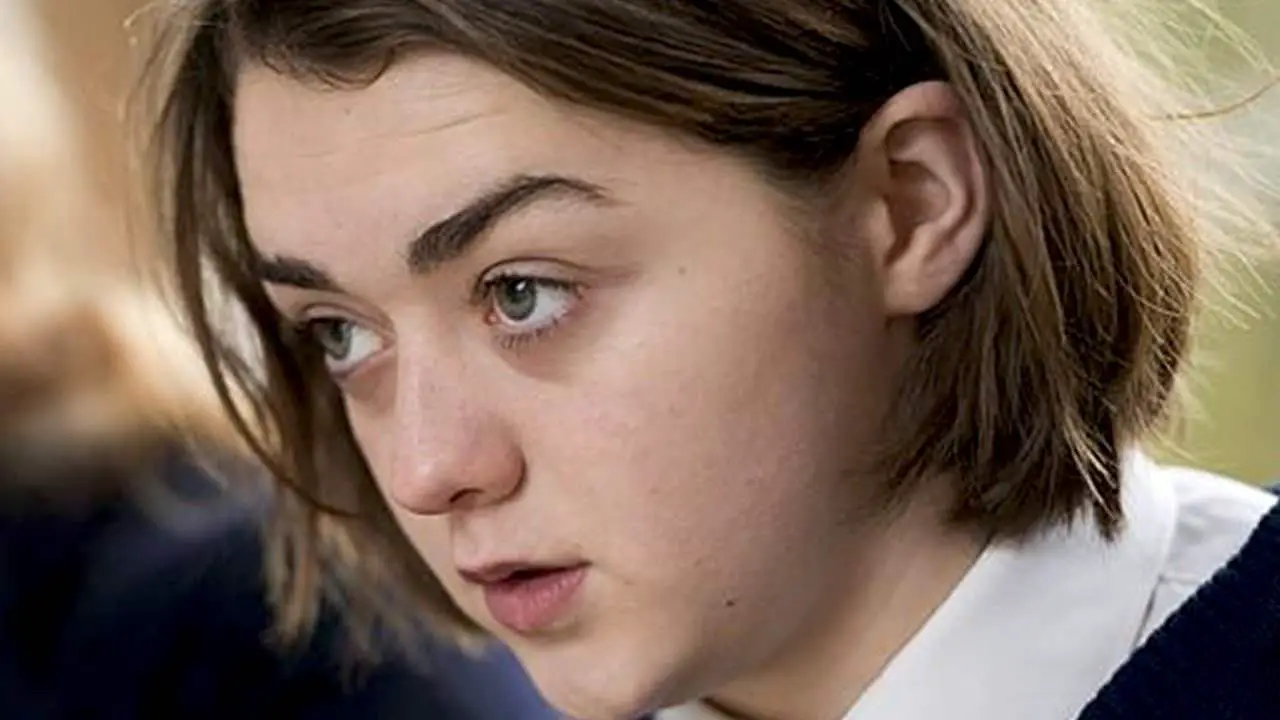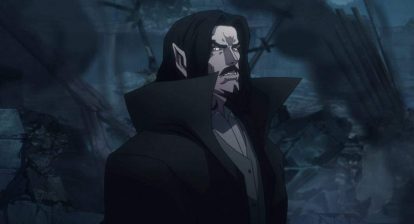Not Quite Horror is back from the dead. After resting for a bit in its kind-of creepy but still-normal-enough-to-pass-as-regular crypt, our biweekly series returns. In each installment, Joey Keogh will argue why a chosen film not generally classified as horror actually exhibits many of the qualities of a great flight flick, and therefore deserves the attention of fans as an example of Not Quite Horror. For the series’ triumphant return, it could only be the barnstorming Widows.
Steve McQueen’s Widows should be in the 2019 awards conversation. Actually, it should be in every conversation. Ordering your Starbucks in the morning? Tell the barista to go watch Widows. Picking up your contraceptives before the government strips of you of your basic human rights? Those medical professionals (usually women) are doing the lord’s work and you know they need Widows in their lives after a long day of being judged by Christian loons.
This is a women’s film through and through, and by that I don’t mean it’s Bride Wars (which I also unabashedly love, don’t @ me) or something. McQueen defiantly puts four bad-ass chicks front and center, which is still virtually unheard of in an action movie, and lets them get down and dirty the way men have since, well, forever. Leading the charge is Viola Davis’s strong-willed but desperate Veronica whose husband Harry’s (Liam Neeson) death, along with the rest of his gang, leaves the titular widows in hot water with a couple local thugs.
See Also: Not Quite Horror: American History X
The flick is an adaptation of an old ITV series spearheaded by a woman (Lynda LaPlante). McQueen co-wrote the script with Gone Girl scribe Gillian Flynn in order to authenticate the female relationships at the heart of it, meaning these women never feel like constructions of the male brain. They’re flawed, angry, petulant, and often make the wrong decision. But they’re not helpless damsels in distress. Much of their discomfort comes from trying their best to just…survive.

Widows is nail-bitingly tense pretty much from the outset. McQueen constructs this dark underbelly that feels as though it’s constantly exposed, even in the cold light of day. When Elizabeth Debicki’s Alice goes on a date with a seemingly nice guy, the wide shot of the all-glass building in which they’re meeting shows how vulnerable she is, even in public, surrounded by people. Alice is a woman whose own mother treats her harshly, lashing out physically when she talks back. She’s used to mistreatment.
Veronica is more well off than Alice, but she too finds herself stalked out in an otherwise safe space when local crime kingpin and wannabe politician Jamal (Bryan Tyree Henry) stops by her plush penthouse, to menace her and her sweet pooch (the same adorable little Westie who appears in Jesse Plemons’ arms in Game Night, FYI). It’s a chilling sequence, both in how the poor doggie is handled and in watching the fear gather in the eyes of the otherwise poised and confident mob wife.
Widows is filled with little moments that hint at the danger percolating, whether it’s the dodgy conversation political father and son duo Tom and Jack Mulligan (Robert Duvall and Colin Farrell respectively) have in the elder statesman’s office, or how McQueen shoots a flashy car driving from a low-income area to a leafier suburb, focusing on the hood as the surroundings turn nicer, the darkness relegated to the background but still clearly present. The sense is that there’s always something lurking.
Speaking of which, standout male cast-member Daniel Kaluuya (of Get Out fame) has a great moment hanging out behind the congregation at a funeral. He locks eyes with Veronica and gives her a creepy little wave (you’ve probably seen the gif) that says more than an hour of torture could. But Kaluuya’s psychotic Jatemme is fond of closer physical intimidation, too, as evidenced by his treatment of a hostage whom he demands rap on the spot before getting right up in his face and then shooting him at close range, barely even blinking as he does so.

McQueen’s films all have a certain kind of exquisite suffering inherent to them, whether it’s Michael Fassbender’s sex addict in Shame, or Chiwetel Ejiofor’s bullied slave in 12 Years A Slave. The British powerhouse doesn’t let his characters off easily. He wants them to suffer so they can be better. And, as crazy as it sounds, seeing four, mostly older women getting the opportunity to, well, suffer and come out the other side just as the men have many times over feels more empowering than a million Wonder Woman movies ever could.
Widows is an often devastating watch, a film that genuinely gave me a knot in my stomach and a lump in my throat, but it’s also empowering as hell, proving once and for all that sisters are doing it for themselves whether the dudes like it or not (“Nobody thinks we have the balls to pull this off”). Some of its most frightening moments are also its quietest, those sequences when the invalidity of the characters’ feelings are put plainly on show (as when Veronica institutes a “no crying” rule), or when their ingenuity surprises even themselves (as when Alice tricks a stranger into helping her buy a gun).
Related: Not Quite Horror: You Get Me
The violence is grisly. It hits you like the slap in the face Veronica delivers when Alice can’t get it together, McQueen lingering on the shot until the devastation leaks into every corner of the frame. Violence begets violence, but whereas gunshots tend to ring out and cause unseen devastation in other films of this ilk, here the casualties are deeply felt. When one of the widows gets shot and collapses midway through the all-important heist job, it’s not a given that she’ll survive.
This is key to understanding the approach here, both of McQueen and Flynn who, as we already know, has no problem punishing men and women equally for their indiscretions. Their viewpoint isn’t cynical or heartless, but it’s often relentlessly, purposefully grim. Still, they end on a vaguely positive note, the ideal finishing point for a movie about the horrors of trying to survive in an uncaring world, and the torture we, as women, must endure to make up for the mistakes of the men around us.
